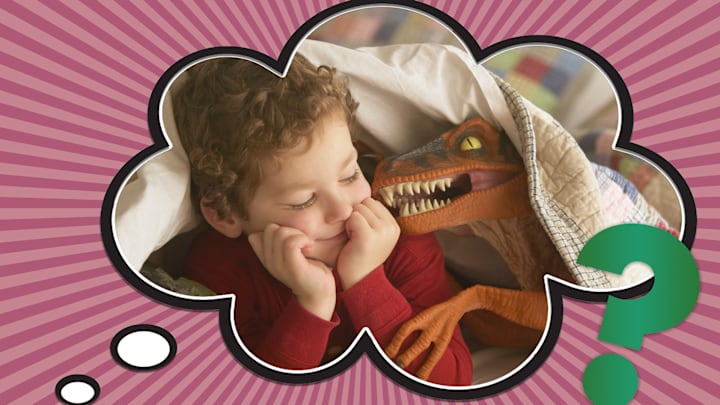You would think dinosaurs—with their huge size and sometimes carnivorous tendencies—would be terrifying to children. But the popularity of dino nuggets and dinosaur shows and movies says otherwise.
What is it about these prehistoric creatures that has children so enraptured?
Early childhood development is largely to blame. Toddlers start to develop a sense of self sometime between 18 months and 3 years of age. Naturally, this new sense of awareness of both themselves and the world around them can be quite confusing.
This feeling of confusion, combined with a vivid imagination, prompts toddlers and young kids to seek ways to connect to the world around them that are both grounding and fun. “If you’re going to have a make-believe world, which fits into this very powerful sense of developing a sense of self, dinosaurs really fit the bill,” Arthur Lavin, former chair of the American Academy of Pediatrics committee on the Psychosocial Aspects of Child and Family Health, told CNN in 2021.
Unlike mermaids and dragons and unicorns, dinosaurs aren’t limited to a child’s fictional worlds. Kids get confirmation from the adults around them that these awe-inspiring creatures did in fact exist, and they are able to see and study remnants of their existence at museums and science centers. Children can even get a form of hands-on interaction with the ancient beasts by playing with dinosaur toys.
Dinosaurs don’t exactly have a reputation for being kid-friendly. Yet kids aren’t afraid of these massive, monster-like reptiles. This is because unlike other ferocious beings, dinosaurs are extinct. Children don’t have to worry about being chased around the neighborhood by a T. rex, so they often feel safe coming up with fantastical, imaginary stories and scenarios involving them.
As children grow older and their social circles expand, their interests begin to shift, causing many to exit their “dinosaur phase.” But whether an individual’s fascination fades or grows, it doesn’t change the fact that dinosaurs have served an important role in childhood development for decades. The prehistoric beasts may be long gone, but their impact on a young kid’s sense of wonder will never go extinct.
Read More About Dinosaurs:
Have you got a Big Question you'd like us to answer? If so, let us know by emailing us at bigquestions@mentalfloss.com.
